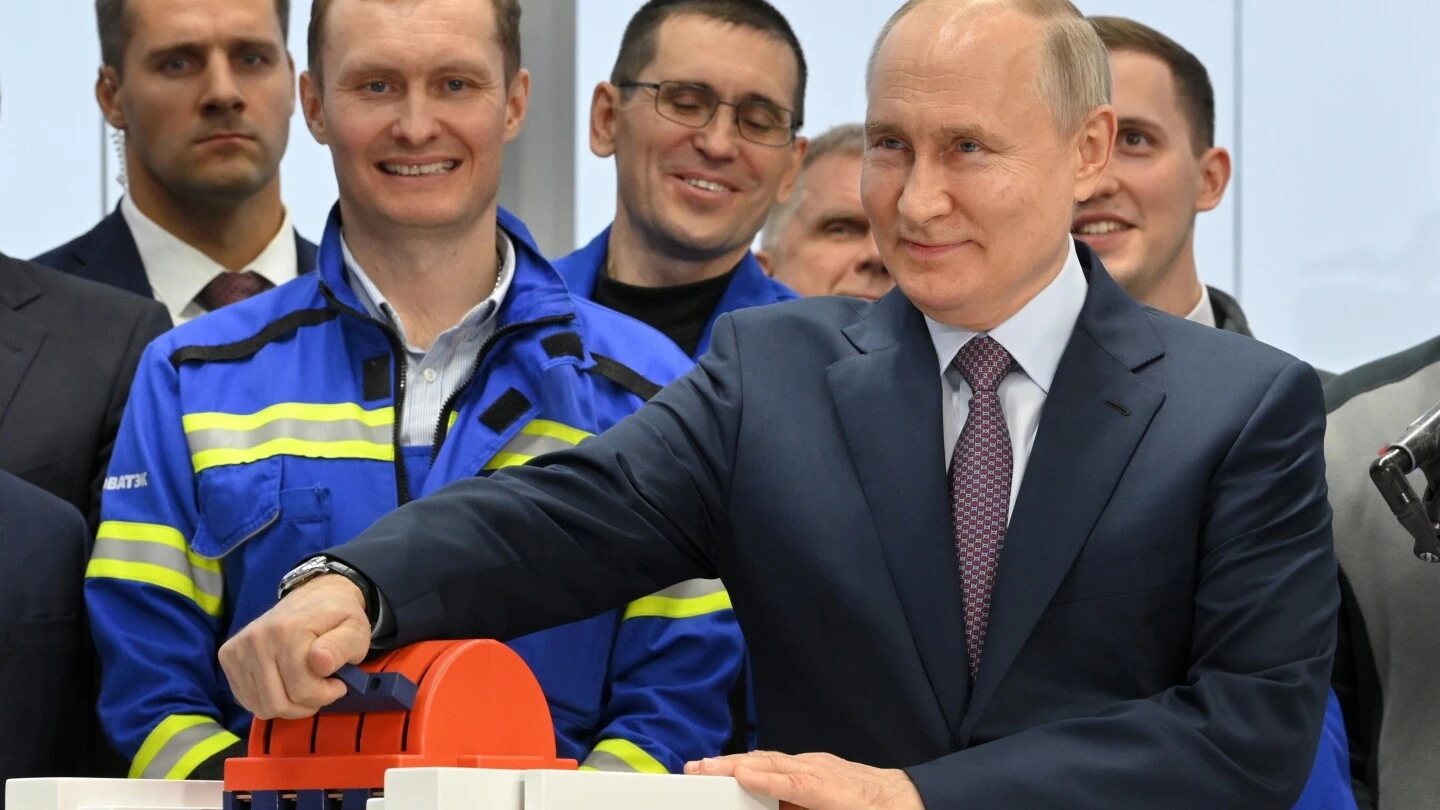Press release from the State Department https://home.treasury.gov/news/press-releases/jy1731
The number of targets differs but it appears to be part of the same action.
This is the best summary I could come up with:
The sanctions package is one of the biggest by the State and Treasury departments and is the latest to target people and companies in countries, notably NATO member Turkey, that sell Western technology to Russia that could be used to bolster its war effort.
The package also aims to hobble the development of Russia’s energy sector and future sources of cash, including Arctic natural gas projects, as well as mining and factories producing and repairing Russian weapons.
“The purpose of the action is to restrict Russia’s defense production capacity and to reduce the liquidity it has to pay for its war,” James O’Brien, head of the State Department’s Office of Sanctions Coordination, told The Associated Press.
The U.S. package includes sanctions on several Turkish and Russian companies that the State Department says help Moscow source U.S. and European electronic components — such as computer chips and processors — that can be used in civilian and military equipment.
“Russia is trying to run a full production wartime economy, and it is extremely difficult to do that with secretive episodic purchases of small batches of equipment from different places around the world,” O’Brien said.
“We need to work much harder with companies in our own countries to ensure that they are not feeding the re-export market,” said Tom Keatinge, director of the Centre for Financial Crime and Security Studies at the Royal United Services Institute in London.
The original article contains 1,089 words, the summary contains 235 words. Saved 78%. I’m a bot and I’m open source!
US Corporations making more money from the wars. This is how the system is set up. it is working exactly as they planned.
Sanctions haven’t worked before, why would it work now?
America’s willingness to toss sanctions around willy-nilly is single-handedly destroying globalism and creating a multipolar world.
They are working, but they can still be improved, hence this.
That must be why SMIC just showed 7nm capability years ahead of when people expected it. That must be why Russia is projecting GDP growth this year and Russia’s manufacturing PMI is showing expansion while most other countries are showing contraction.
Who do you think you’re convincing with this?
That must be why SMIC just showed 7nm capability years ahead of when people expected it.
Nah, it was expected all the way since SMIC bought 7nm lithography machines from ASML. It will be more interesting to watch when they start building their own lithography machines since their current stock will not scale (and will eventually break down without spare parts).
That must be why Russia is projecting GDP growth this year and Russia’s manufacturing
Yeah, according to Rosstat :-)
Who do you think you’re convincing with this?
I’m not trying to convince anybody, I’m fine with the current sanction course. But it’s kinda funny to watch the Russian / tankie desperate “sanctions don’t work, so … you know there’s no sense in continuing them, so … you should lift them.”
S&P is also projecting Russia manufacturing PMI expansion.
It’s true the sanctions are working as evidenced by the PMI numbers coming out of Europe.
single-handedly destroying globalism
Oh no! Anyways…
The globalization of the economy has been the single greatest contributor to world peace since the second world war.
People love to make this claim but it’s kind of impossible to prove. I could just as easily say that the Second World War itself resulted in a distaste for war, or that innovations in computers and electronics contributed to world peace. There’s just correlations, but it’s just kind of “vibes” - “oh they wouldn’t go to war because they rely on eachothers trade!” as if historically nations didn’t also have trade. Like, Venice was notoriously the trade hub of Europe in the Middle Ages and it still got invaded a whole bunch.
Venice didn’t really have domestic technologies that everyone else relied on and that couldn’t be easily replaced because it costs the GDP of a medium-sized country to even develop.
So what you’re talking about isn’t really globalism, but technological supremacy? Globalism is just about supply chains being spread across the globe. When I pointed out that nations connected with large supply chains still got invaded you moved the goalposts to be about technology.
The fact is that I don’t think there really is any domestic technology that everyone relies on which only has one source - high tech industries such as semiconductor electronics, aerospace engineering, biomedical engineering, etc. are researched, designed and manufactured all over the world. Yes, there are certain countries which have a lot more research in one area than others, or which manufacture a lot more than others, but it’s not as if China, Russia, the USA, Israel, Europe, etc. would be incapable of research, design and manufacturing if those other powers just suddenly ceased to exist.
The Roman Empire had technology that was decades ahead of their contemporaries and that didn’t seem to help them keep the peace - but something else did - an emperor who valued peace and saw it as the goal of the Roman Empire. After the death of Marcus Aurelius, Pax Romana went into decline. It wasn’t technology, or trade, or even military strength which kept the peace - it was a desire for peace, and the people who worked to achieve it.
What exactly do you think the input of a supply chain is?
Raw materials. What are you getting at?
Until it has not
The US has shown that they’re willing to weaponize their position in the West to block development of technology by key rivals like Russia, China, and India. The dependence that these powers had on Western technology is a key motivator against war… But today? If the US can unilaterally restrict access anyway, what’s the motivation?
The dependence they had on Western technology was a key motivator against war precisely because the US can unilaterally restrict access to their tech. Going to war means losing US tech, and Russia decided that war was worth losing US tech
Except the US was already demonstrating their willingness to restrict access to tech. We saw that in China when the US restricted access to semiconductors and semiconductor equipment because of the domestic issue in Xinjiang.
Wars are very costly, and wars between nuclear superpowers would be world ending. US and USSR had no trade to speak of and didn’t go to war for these reasons.





